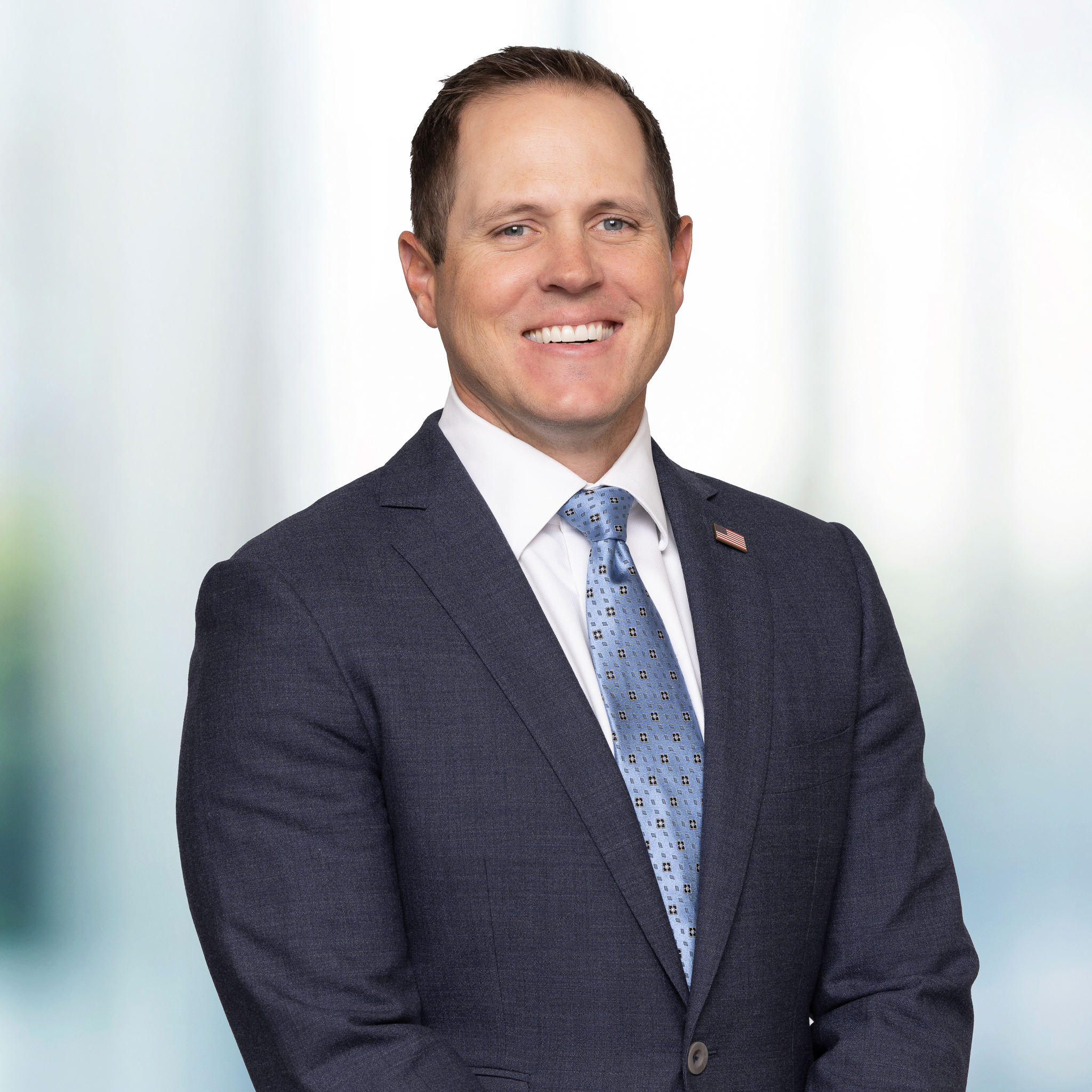Managing wealth can feel like a maze of complex financial choices, especially if assets are in various investments, businesses, and properties. A high-net-worth client usually requires a balanced approach capturing all of your accounts, and building out a total risk profile – all while ensuring liquidity needs are met and being tax efficient.
Without careful organization, these complexities can hinder your ability to maximize opportunities and manage your wealth effectively. That’s why taking proactive steps to monitor, organize, and streamline your finances is crucial.
This article shares insights from a seasoned financial planner on how to organize finances for secure, long-term wealth building and preservation. These strategies improve financial clarity and allow you to grow and keep wealth throughout your lifetime and those of the next generations.
How to Organize Your Finances in 8 Steps
Organizing your finances requires a strategic approach to make your wealth fully work for you.
1. Accurately capture with your net worth
Begin by assessing your current financial position. Your net worth is an overview of your financial health and can be a benchmark for tracking. Calculating your net worth involves subtracting your liabilities—like mortgages and other loans—from properties, investments, retirement accounts, and other assets.
From here, you can make more accurate decisions based on your current financial standing. Regularly assessing your net worth ensures you remain on course to meet your objectives.
2. Consolidate your banking and investment accounts
Besides giving a comprehensive view of your financial holdings, streamlined financial accounts simplify management and reduce administrative burdens. Consolidating these accounts also reduces costs and the potential for oversight. For example, combining multiple brokerage accounts into one results in seamless investment monitoring and reporting.
3. Monitor your short-, medium-, and long-term financial goals
Many people have diverse financial goals, from short-term liquidity needs to long-term wealth preservation and estate planning. Once you identify your goals, create clear metrics and timelines for measuring progress and success. Review and adjust these goals regularly to reflect changing priorities and circumstances.
For example, your short-term goal might involve optimizing cash flow for day-to-day expenses and ensuring sufficient liquidity for emergencies or opportunities. Long-term goals might revolve around planning for retirement. Align your strategies accordingly to meet these objectives.
4. Create a comprehensive budget
Even with substantial wealth, creating a budget remains essential for keeping your retirement plan on-track. Begin by meticulously identifying all sources of income, including dividends, rental income, and business profits. Next, categorize your expenses, distinguishing between the essential and discretionary to prioritize resource allocation appropriately.
When allocating funds toward savings and investments, use budgeting and automation tools and software to make this step easier. As an example, you can fund your pre-tax accounts automatically. You can put a predetermined amount into your after-tax savings accounts automatically each month or each pay period. There is a lot of power in getting clear on your budget, and automating your path to financial independence.
5. Create time to meet with a tax strategist as well as a CPA to file your return!
Intelligent tax planning should be a huge part of your capacity and plan to save money and be retirement ready. Surrendering less money to taxes, and keeping more of your hard earned money, you have money to fund your lifestyle, and save more. This point cannot be overstated! Meet with a team committed to tax planning. No, that doesn’t mean just meeting with your CPA at the end of each year and asking them to help you pay less in taxes. It means meeting with a team or group that specializes in tax planning, and looking for forward thinking ways to reduce your tax bill.
6. Revisit your asset allocation
Your asset allocation is the ratio of asset classes in your investment portfolio. Regular reviews and adjustments are essential for maintaining a balanced and risk adjusted portfolio. Assess the performance of your existing assets. But how do you do that? What do you compare your performance to? How would you know if your investments are underperforming? How would you know if costs were above average?
These are questions we are regularly asked. Take this bit of coaching… investment are all about risk, and return. Another way to say that is, are you creating a sensible amount of return relative to the amount of risk you are taking in your portfolio? That is where you need to look!
How would you know or how could you tell? It can be tricky to measure and be clear on that if you are untrained. However, Tencap offers a deep-dive on the question and some coaching to show you how we measure that. We won’t just share our opinion, we will teach and coach you on how you can confidently know or tell if you are participating in financial markets in a way that maximizes your return relative to the amount of risk/exposure you are taking on in your investments.
Consider examining your age, risk tolerance, employment and net-worth, over time. Those are primary factors to examine as you consider if your asset allocation is prudent.
7. Review insurance policies and estate plans
Your insurance coverage and estate plans are fundamental to safeguarding your finances and legacy. Insurance is an important layer of protection, guarding each of us from liability and legal action that could threaten to compromise what we have built and saved.
Furthermore, insurance has a place in guarding against unexpected circumstances like the loss of a working adult in a family, or the even more unusual circumstance of losing both working adults / parents in a family. While this point can feel depressing, it’s critical to plan for these sorts of circumstances. In October of 2023, one of our advisors had a client that phoned and asked to cancel their life insurance policies as budget constraints left them feeling tight. Our advisor strongly asserted this was not a wise option to explore and suggested they look elsewhere for cost savings. The next month the husband and Father of that family passed away unexpectedly. Had proper insurance planning not been in place, I’m telling you, this family would have been left with even more worry and anxiety about their future.
There are dozens more stories we can share, all of which will showcase the importance of intelligent insurance planning!
Lastly, stay aware of changes in tax laws and regulations on local and federal levels to optimize your estate planning strategies and minimize potential tax liabilities. Unfortunately, over half of wealthy families lose their money by the third generation, making proactive estate planning, and education and coaching for future generations even more imperative.
8. Work with a Certified Financial Planner (CFP®)
Again, the intricacies of wealth management can be overwhelming, requiring the expertise of a financial planner. Better yet, you should find a Certified Financial Planner, as CFP® professionals serve as fiduciaries responsible for providing personalized financial advice tailored to your circumstances.
Partnering with a trusted advisor lets you participate in comprehensive wealth management strategies and ongoing guidance that align with your shifting needs and goals. Instead of grappling with the complexities alone, entrust these matters to a professional who can apply their expertise and diligently work for you.
Take Charge of Your Finances Confidently
Organized finances are the cornerstone of long-term prosperity. Implementing the expert tips in this article lets you take control of your financial future with certainty. Remember, a robust financial foundation is not just about having money; managing it wisely to achieve and sustain your goals and dreams is equally essential.
Tencap Wealth Coaching empowers you with the knowledge and strategies to manage your wealth confidently. We’ve helped hundreds of high-net-worth clients better understand their finances, get organized, minimize their tax bills, and be retirement ready! Contact us today to get started on creating your comprehensive financial plan!

Greg Black, CFP®, ChFC®
Greg Black is the owner and founder of Tencap Wealth Coaching, an independent investment advisory firm founded on academic investing principles. As a Certified Financial Planner, Greg takes an educational approach to helping his clients be settled and responsible with their financial circumstances. Greg specializes in helping his clients create a proactive plan to minimize the exposure of market conditions while still harnessing the incredible power of global financial markets.
Greg specializes in "complexity" and is skilled at turning a complicated situation into an organized strategy for the families he serves. Greg, and each advisor of Tencap, is a stated fiduciary. You never have to wonder if your best interest is being served. Greg has been transforming the investor experience since 2012.
-
Greg Black, CFP®, ChFC®#molongui-disabled-link
-
Greg Black, CFP®, ChFC®#molongui-disabled-link
-
Greg Black, CFP®, ChFC®#molongui-disabled-link
-
Greg Black, CFP®, ChFC®#molongui-disabled-link








